Ex-Frampton bassist talks about the early days and his new group with session stars
Exclusive interview with FBPO’s Jon Liebman
August 16, 2021
Stanley Sheldon will probably always be closely associated with Peter Frampton. After all, he played bass on the wildly successful live album, Frampton Comes Alive, which rocketed the English rocker into superstardom in the 1970s. The Kansas native is also known for being an early adopter of the fretless bass and for his work with Tommy Bolin, Warren Zevon, Delbert McClinton, and Cheech & Chong. In addition to his musical skills, Sheldon is a musical scholar whose research has focused on how 19th Century Latin America slavery influenced world music.
FBPO: How did you become a bass player?
SS: Well, my cousin Tom and I are the same age. When we were 10, or maybe even younger, Tom’s dad was listening to a lot of the boogie-woogie piano players. Tom had taken a few classical lessons and hated it, but when he heard boogie-woogie music, he started just playing by ear. He was gifted from a very young age because he could play that very complex left-hand boogie-woogie stuff. A couple years later, around 1958, we were hearing the records, Elvis and Little Richard and Jerry Lee Lewis and Chuck Berry. Those were the same ones the Beatles were listening to. And so we had been bitten by the music bug. We hadn’t started really playing it, but as age 12 turned into 13, the Beatles hit on the American shores in 1963, February. And at that point, we both decided, “Let’s start playing. We’ll put a little band together.” I bought my first bass, and my cousin and I would go upstairs to the music room at the junior high school and jam. I’d jam on the upright a little bit. We’d jam on stuff like Ramsey Lewis’ The In Crowd, just some really kind of cool piano, bass things that suited us.
FBPO: You went straight to the bass as your first instrument?
SS: Yeah, that’s my instrument. I’m a kind of a specialist in all styles of bass playing.
FBPO: A lot of people end up playing bass because the band doesn’t need another guitar player.
SS: We played bass by default, yeah. You know, those stories, they always cracked me up because at that point, nobody really understood—well, maybe they did—the important role of the bass, being the most important instrument in any band. I’m a bass player. I can say that, but it’s true. You can ask just about any musician and they’ll tell you that it starts with the bass and drums. That’s the foundation for any band. And the bass is the link between the harmonic world and the rhythmic world, which is a beautiful thing.
FBPO: Who were your bass influences?
SS: I had a lot, but I learned the blues pretty early. I’m glad I got the blues lesson from a family of people in Ottawa called the Motens. They’re related to the great Benny Moten out of Kansas City. They had some cousins that lived in my town and these guys played in the first electric bands that I saw as a young boy, in the late ‘50s, early ‘60s. George Moten, and his brother Gilbert, taught me how to play the blues. After that, I started hearing a lot of the Motown stuff, and I knew that was great bass playing. I didn’t know it was always the same bass player, James Jamerson, but he was probably my greatest influence. There are plenty of bass players that I like, but he was the very first and still probably the most important one. And Paul McCartney was the other one for me. On the other side of the Atlantic, you know, they adored the Beatles. We had Motown.
FBPO: How did your career get rolling?
SS: I’ll give you the nutshell version. I got out of Kansas when I was about 18 or 19. I got a call to come and play bass with a band out in Colorado, and the person that I met when I got there, the singer in this band, was already good friends with Tommy Bolin. That’s really where my professional career started. I had been playing with my cousin in our band, the Lost Souls. We played fraternity parties and stuff around here in Kansas. But you know, I think my career really got going the day I met Tommy Bolin in Colorado.
FBPO: What was Tommy up to in those days?
SS: Tommy was in a band called Zephyr. They played bluesy rock, and they had a female singer, kind of Janis Joplin-esque. She wasn’t that great, but she was good, you know? Tommy got bored with Zephyr and that’s the point where I met him. When Zephyr was in New York, he had started meeting Billy Cobham and Jan Hammer and all these jazz guys. That’s what Tommy was drawn to, this fusion world. Bitches Brew, Miles Davis. And when I met Tommy, I was into that stuff too, [but] not as much as Tommy. So Tommy and I continued on our quest. And it was at that point, in ’73, that Billy Cobham knocked on his door at his apartment. I was there that day, by the way, ’cause Mahavishnu was in town playing. And Billy Cobham came over and invited Tommy to play on his new album that he was about to record in New York city that became Spectrum.
FBPO: You and Tommy were pretty close.
SS: He was my best friend, and I was his best friend. And we moved to L.A. together. We were only there two months, and Tommy got an audition with Deep Purple, and I got an audition with Peter Frampton.
FBPO: That Frampton Comes Alive album. What about the success of that record? Did that surprise you at all?
SS: Did it surprise me? It surprised everyfuckingbody. Nobody could have predicted that. I mean, Peter, he did work very hard. The three years previously with three solo albums, Humble Pie recorded a record in America called Rockin’ the Fillmore. Peter already had in his mind a vision of doing another live album. So Peter quit Humble Pie in 1971 and moved to America. Dee Anthony was his manager and they were orchestrating his career. He did these three albums that all did fairly well. They didn’t make that much noise, but he was opening up for somebody every night, just working his ass off all those years. Right after I auditioned and got the gig, we left New York and went right on the road. We ended up in California like in the middle of the summer and that’s when we recorded most of what would become Frampton Comes Alive.
FBPO: What’s keeping you busy these days?
SS: Oh man. Well, I got a few things going on. When I was playing with Peter, I got to play with, I’d say 10 or 12 of my favorite drummers in the world. Greg Errico, Sly’s original drummer; Andy Newmark, Sly’s next drummer; Rick Marotta; Joe Vitale; Jamie Oldaker; and the list goes on and on. So right now, we have, we’re in the works of doing a thing, similar to what The Immediate Family does, where we’re assembling a bunch of session stars, myself and Joe Vitale and my cousin, Tom, who I mentioned, is also involved. And we’re going to go under a name like the Usual Suspects. We don’t know what we’re going to call it yet, but we’re going to play the hits of our bosses. Just like The Immediate Family does, you know, they go out and play James Taylor hits. We’re going to do the same thing. Vitale is going to be our drummer, and Sandy Gennaro. So we’ve got a couple of drummers and we’ve got a couple of guitar players.
FBPO: Tell me about your gear.
SS: And I use MarkBass. I love the little Mark 800. I’ve used four tens. I like to use a 15 on the bottom, whatever.
FBPO: What about your basses?
SS: You know, I’ve got a lot of basses that I love. I have a James Jamerson model, Precision, Peter got me a couple of years ago. An American-made Fender with really good wood. Even though it’s a reissue, it’s a tremendous bass. But my workhorse bass has been my Warwick Fortress 5-string, the Fortress One, it’s called. I’ve got a Baby Bass. I’m fluent in Spanish, so I’ve been writing, trying to co-write songs for this young Latina. She’s going to be a huge star. They’re taking her all the way to the top. Peter Asher produced the first two songs that Ed Sheeran gave her. That’s probably the thing I’m loving the most because I get to use my little Baby Bass. There’s a guy in Puerto Rico that just copied that style of the Ampeg Baby Bass and it’s Ray Ramirez. So I have one of his Baby Basses and that’s what I play. And I love playing Latin. I love playing salsa. I play in a salsa band here in Lawrence and I love playing Latin bass lines.
FBPO: What about on your P bass? Do you have flatwounds on that?
SS: I have flatwounds, yeah, And I never changed it. I mean, that’s my style. I would say Jameson, Jaco and Rocco are my main influences, that kind of finger, precise 16th-note feel. You know, I’ve never got to use that style with Frampton that much. Often less is more. I love just playing simple Cuban bass lines, but you know, the complex stuff like Rocco Prestia would do. That’s how I practice.
FBPO: What advice do you have for somebody who wants to learn bass?
SS: Well for me, and I always tell to my youngest students and my oldest students the same thing: Find a way to frame your practice sessions so that it’s so much fun for you that you just get lost in it. And the way I’ve always done it is to put on the headphones or just sit in front of really good speakers with my favorite music and my favorite bass players. And I just sit there and I dig in. And I get the level just right where I can superimpose myself right over the track. And then I’m playing with the greatest musicians in the world. That’s how I still practice today. I would tell young students or old students to dig in with the headphones on so you can really hear, and just keep stopping it and learning and going over the same passage a hundred times, 200 times, if that’s what it takes. That’s what I do.
FBPO: What would you be if you weren’t a bass player?
SS: When I worked on my Latin American studies degree, I had stepped away from the business for almost a decade to overcome an addiction. I had to leave the business and leave all the temptation behind for that decade, so I became fluent in Spanish and Portuguese, right? I’d say from 2001 until I heard from Peter or started playing with Delbert McClinton, actually, I was working as a bilingual instructor to Spanish speakers. They couldn’t speak English. They had come up to the U.S. to do the work that people up here didn’t want to do, like removing asbestos and, you know, construction work. These workers had to go through a program and I just happened to meet a company that needed trainers who were fluent in Spanish and could teach OSHA and EPA protocols. I did that for almost eight years all over the country. I could picture myself doing a lecture tour at universities all over the country. I love talking about it.
See Jon’s blog, with key takeaways from this interview here.
Frampton Comes Alive! is available here:
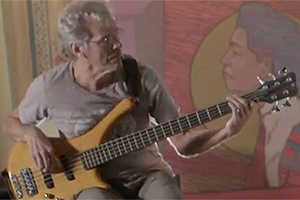
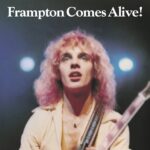
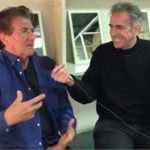
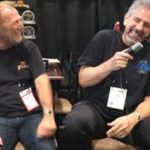
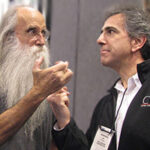
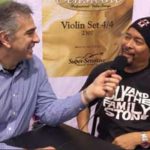


Stanley is one of the greats. A big influence for me for sure. Great interview.